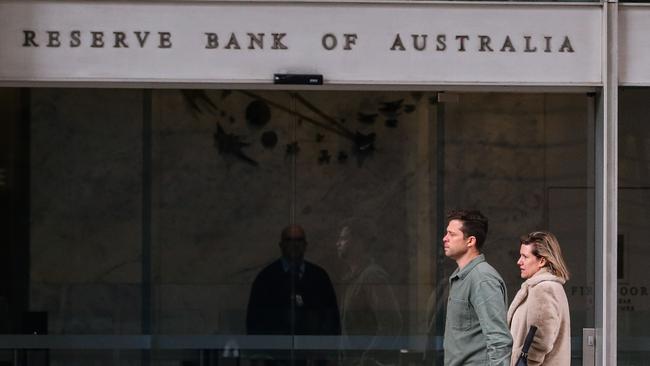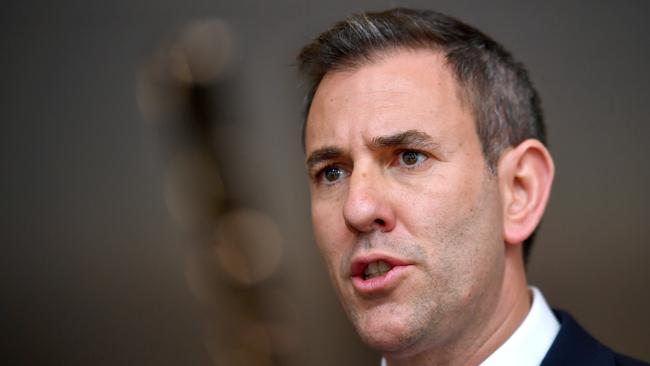Review reveals mortgage stress fears as rates climb
Financial Stability Review finds first home buyers, low-income families and overstretched borrowers vulnerable to loan default due to rising interest rates and cost-of-living pressures.

One-in-four homeowners with a variable-rate loan would be pushed into mortgage stress if the Reserve Bank raises interest rates by another full percentage point.
In its six-monthly Financial Stability Review, published on Friday, the central bank said first home buyers, low-income families and overstretched borrowers were particularly vulnerable to loan default due to rising interest rates and cost-of-living pressures.
The RBA also said global financial instability was rising, amid tumbling asset prices, market volatility and geopolitical tensions, with IMF managing director Kristalina Georgieva warning the global economy is at increasing risk of recession and could lose $US4 trillion ($6.2 trillion) in output by 2026.
But the stability review declared the broader Australian financial system was in good shape due to high profitability, robust capital levels and strong liquidity.
Jim Chalmers said on Friday that six consecutive interest rate rises “were having an impact on the finances of ordinary Australians”.
“The higher interest rates go, the more they will sting ordinary Australians,” the Treasurer said after the release of the review, which said some families would have to trim discretionary spending and draw on savings to cover rising mortgage costs.
“Some Australians have a buffer in their personal finances, but many don’t.”
With the jobless rate expected to rise from a near 50-year low of 3.5 per cent as the economy slows in line with global trends, negative equity in family homes and business failures and bad debts could become more widespread.
“Higher interest rates and inflation will slow aggregate household consumption and the pace of economic growth more broadly, but the direct financial stability risks posed by vulnerable borrowers appears modest,” the review said.
“A large increase in unemployment combined with a historically large decline in housing prices would pose a more material risk to loan arrears and defaults, and therefore financial stability.”
The RBA notes further insolvencies are likely in the troubled residential construction industry and although banks have limited exposure to builders, “there is potential for financial stress to spread to other businesses within the broader construction industry and to some households”.
Following the Optus customer data breach, the RBA said it was likely a major entity would eventually succumb to a cyberattack, posing risks for the system.
On Tuesday, the RBA raised its cash-rate target by 0.25 percentage points to 2.6 per cent.
In his policy statement, RBA governor Philip Lowe said the bank “expects to increase interest rates further over the period ahead”.

Dr Chalmers said the Albanese government’s October 25 budget would provide targeted cost-of-living relief that “doesn’t put extra pressure on the independent RBA”.
The central bank’s financial health check found if interest rates were to rise by a cumulative 3.5 percentage points (broadly in line with market expectations to the end of 2023) and incomes rose in line with forecast wages growth, the share of borrowers facing a minimum debt-servicing ratio greater than 30 would increase to about 25 per cent by the end of 2023.
Mortgage stress is generally defined as loan repayments of more than 30 per cent of pre-tax household income.
If unemployment were higher and income growth did not increase as expected, more families would fall into this category.
Although the RBA board slowed the pace of hikes this week, ANZ Bank expects the central bank to keep tightening policy into next year, with the cash rate peaking at 3.6 per cent by mid-year.
“This doesn’t mean other spending won’t be materially impacted by higher interest rates, but it does suggest that fears a cash rate above 3 per cent means a hard landing for the economy are overstated,” ANZ economists said on Friday.
The RBA noted many fixed-rate borrowers faced large-step changes in their mortgage rates of 3 4 percentage points when their term expired.
Two-thirds of these loans were due to roll over by the end of next year.
CBA economists said “exactly how households respond to this cashflow impact is crucial for the economic outlook”.
“While the (RBA) may be broadly content that most households can cope with higher interest rates and that banks are highly liquid, this does not mean that tightening financial conditions will not materially lower household consumption growth and consequently slow the economy in the coming period,” CBA’s Harry Ottley and Kristina Clifton wrote in a research note.
“A stable financial system does not guarantee a strong economy.”







To join the conversation, please log in. Don't have an account? Register
Join the conversation, you are commenting as Logout